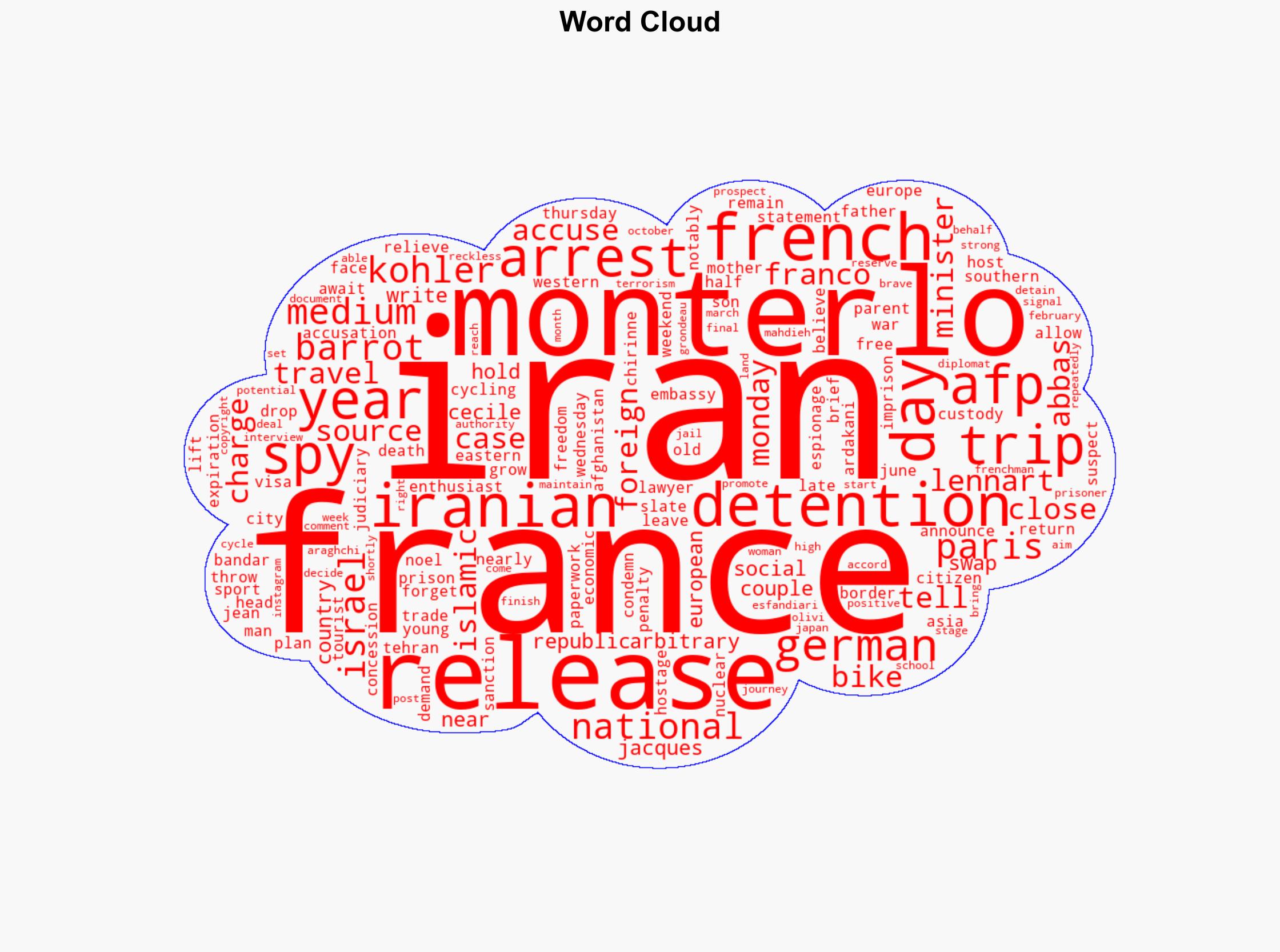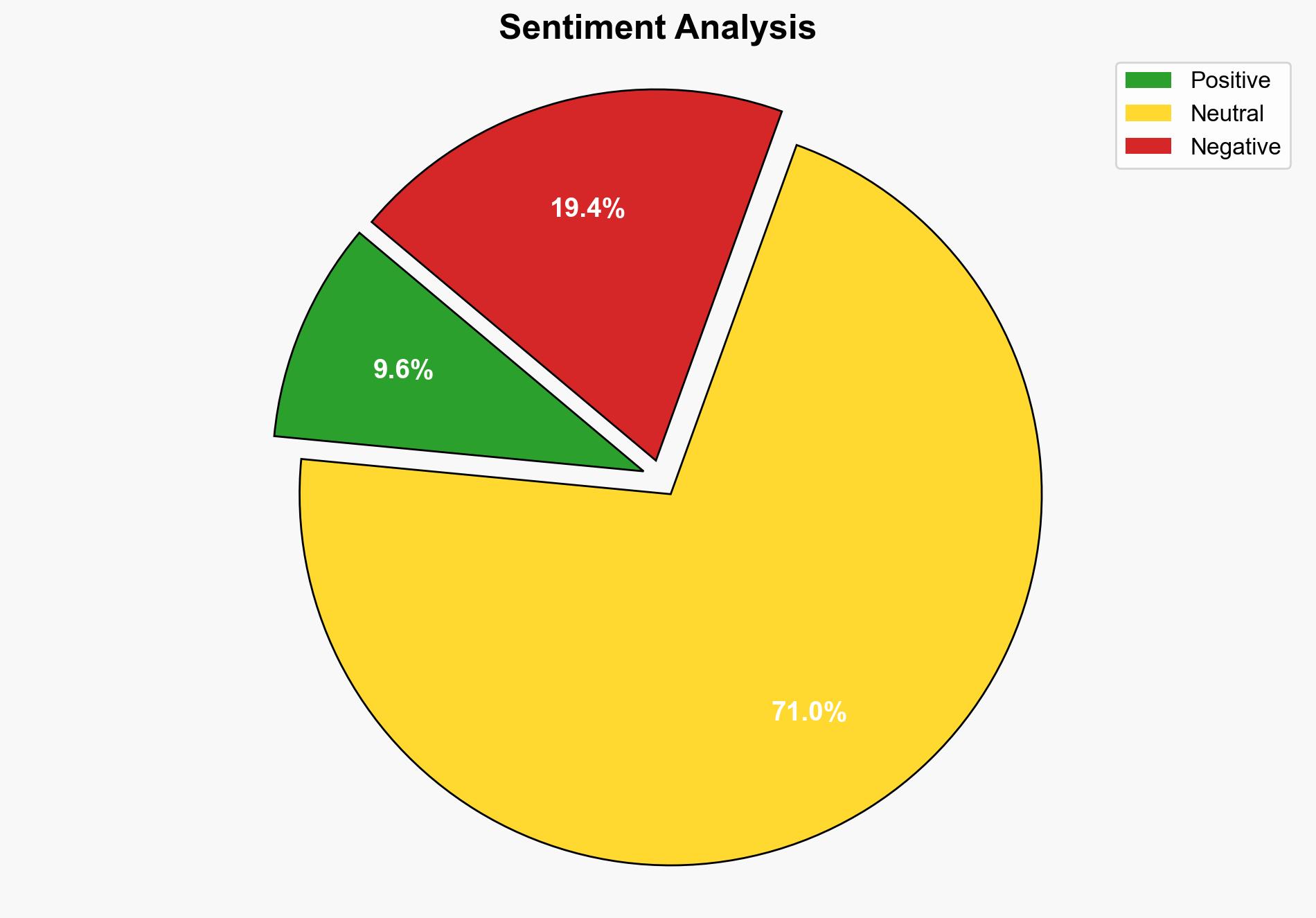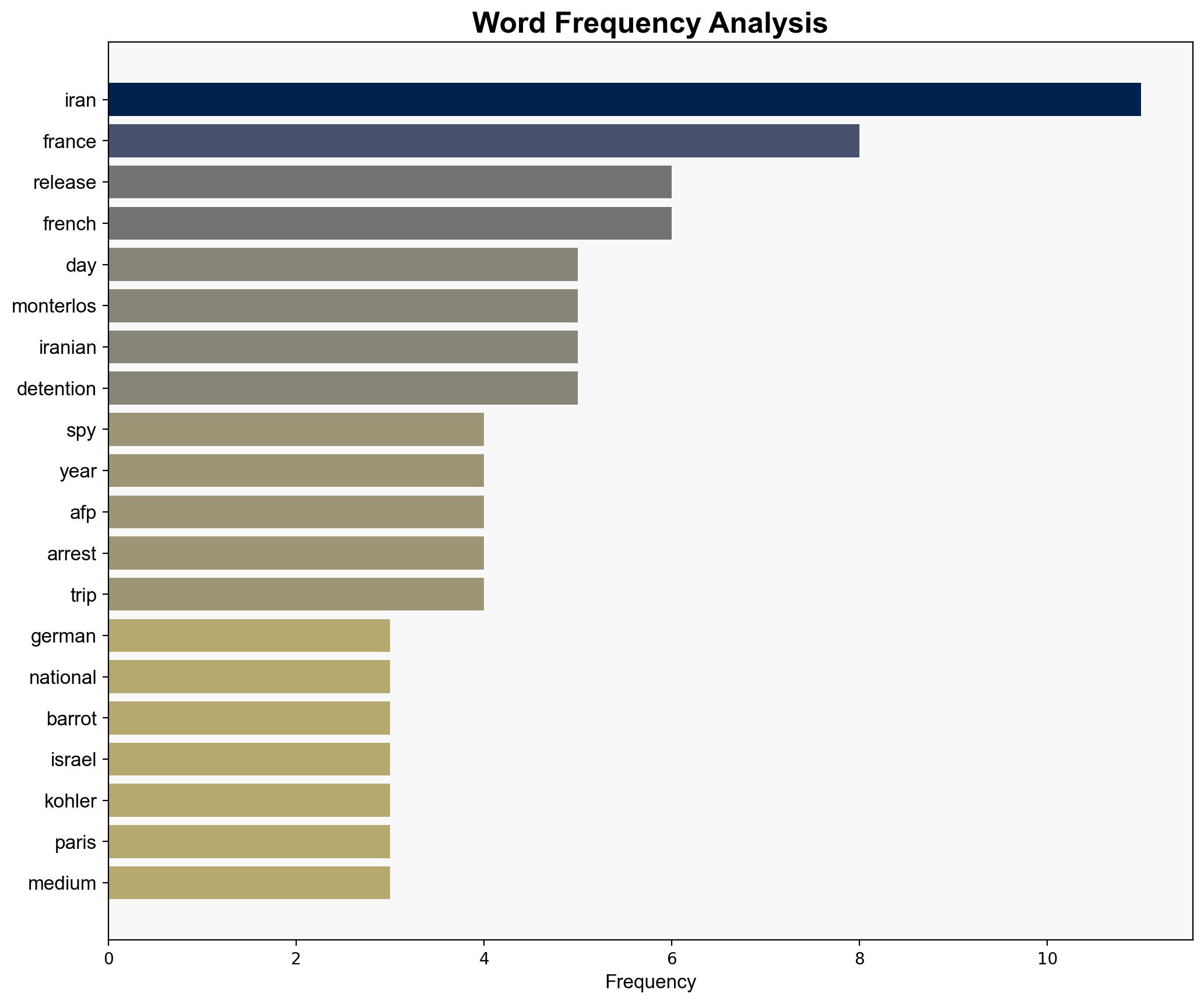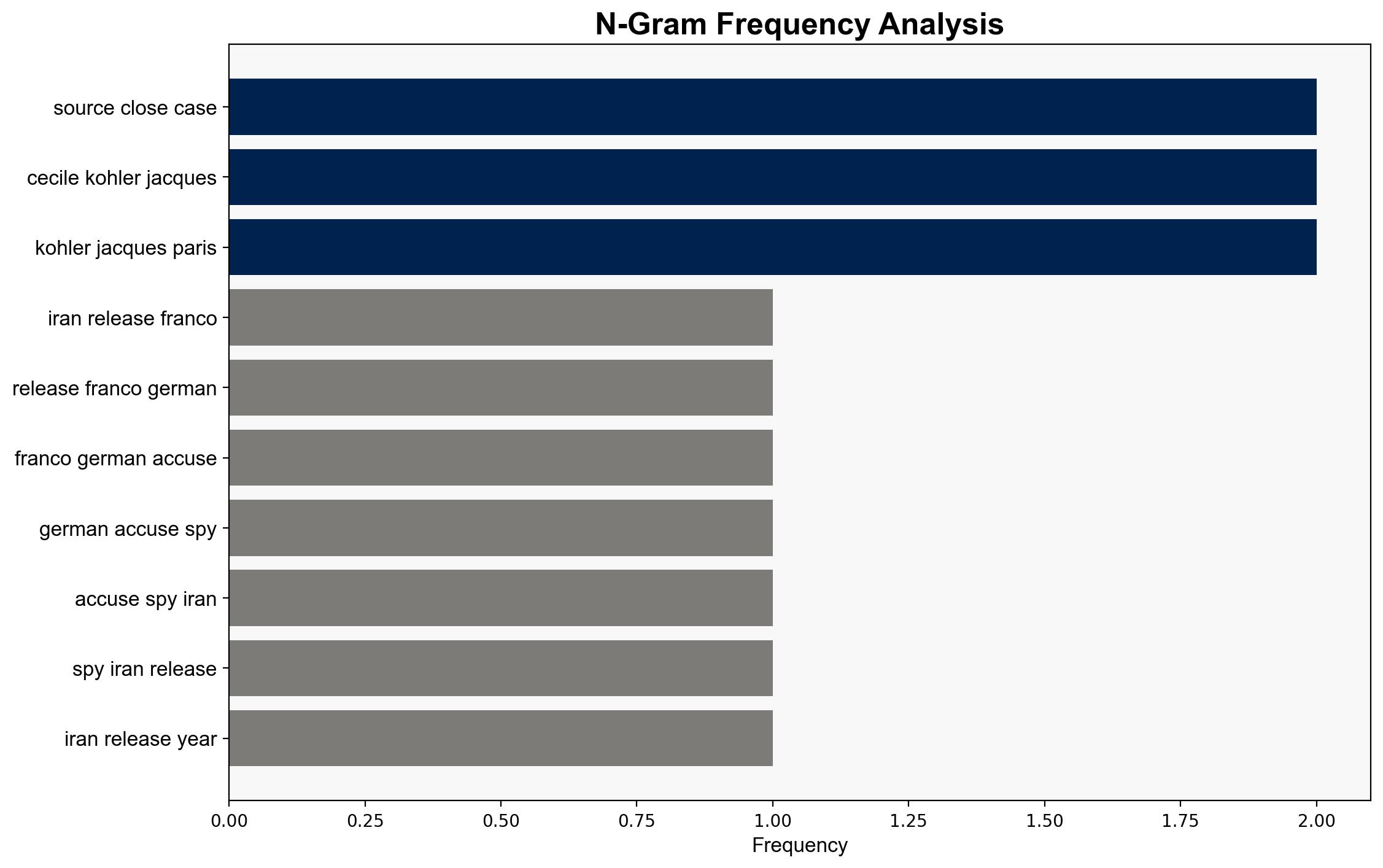Iran Releases Franco-German Accused Of Spying – International Business Times
Published on: 2025-10-08
Intelligence Report: Iran Releases Franco-German Accused Of Spying – International Business Times
1. BLUF (Bottom Line Up Front)
Iran’s release of the Franco-German national, Lennart Monterlos, suggests a strategic maneuver possibly linked to broader diplomatic negotiations. The most supported hypothesis is that Iran is using detainees as leverage in international negotiations, particularly concerning nuclear sanctions. Confidence level: Moderate. Recommended action: Monitor Iran’s diplomatic engagements for signs of concession-based negotiations and prepare for potential escalations in hostage diplomacy.
2. Competing Hypotheses
1. **Hostage Diplomacy Hypothesis**: Iran is using the detention and release of foreign nationals as a strategic tool to gain leverage in international negotiations, particularly to ease economic sanctions and advance nuclear discussions.
2. **Judicial Independence Hypothesis**: The release of Monterlos is a result of a genuine judicial process where espionage charges were found unsubstantiated, reflecting an independent legal system rather than political maneuvering.
Using ACH 2.0, the Hostage Diplomacy Hypothesis is better supported due to the pattern of detentions and releases coinciding with diplomatic negotiations and the historical context of Iran’s use of such tactics.
3. Key Assumptions and Red Flags
– **Assumptions**: The Hostage Diplomacy Hypothesis assumes that Iran’s judiciary lacks independence and is influenced by political objectives. The Judicial Independence Hypothesis assumes a fair legal process exists in Iran.
– **Red Flags**: The timing of releases often aligns with diplomatic events, suggesting political motivations. Lack of transparency in judicial proceedings raises questions about the independence of the legal process.
– **Blind Spots**: Limited access to internal Iranian decision-making processes and potential undisclosed diplomatic communications.
4. Implications and Strategic Risks
– **Geopolitical**: Potential for increased tensions between Iran and Western nations if perceived as hostage diplomacy continues.
– **Economic**: Continued sanctions could impact Iran’s economy, potentially leading to further aggressive diplomatic tactics.
– **Psychological**: Foreign nationals may become wary of travel to Iran, impacting tourism and cultural exchanges.
5. Recommendations and Outlook
- Engage in multilateral diplomatic efforts to address the issue of detainees and prevent escalation.
- Enhance intelligence sharing among Western nations to anticipate and respond to potential hostage diplomacy.
- Scenario Projections:
- **Best Case**: Diplomatic negotiations lead to a reduction in detainee incidents and easing of sanctions.
- **Worst Case**: Increased detentions lead to heightened tensions and potential military confrontations.
- **Most Likely**: Continued use of detainees as leverage with periodic releases linked to diplomatic progress.
6. Key Individuals and Entities
– Lennart Monterlos
– Jean Noel Barrot
– Cecile Kohler
– Jacques Paris
– Mahdieh Esfandiari
– Abbas Araghchi
7. Thematic Tags
national security threats, hostage diplomacy, geopolitical strategy, Iran-West relations





